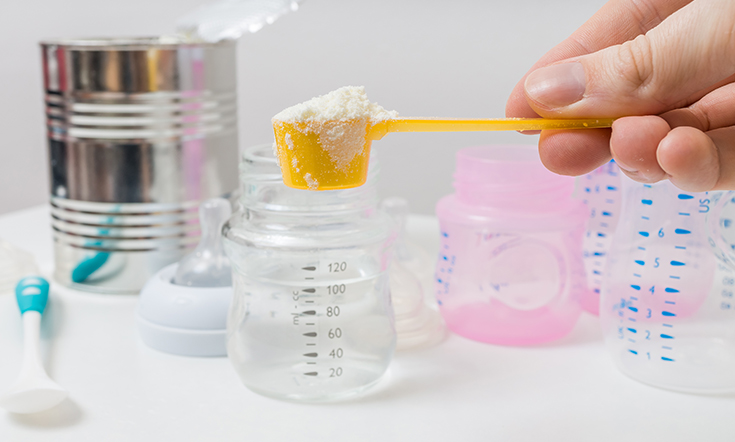

Research Finds Incorrect Measurement Markings on 50% of Infant Feeding Bottles In Australia. A study done by academics at Western Sydney University has found that more than 50 percent of baby bottles on the Australian market have either incorrect measurement markings or are missing some markings, making it difficult for parents and carers to make up baby formula to the correct ratios.
The finding has led to calls for an industry standard to be created, both in Australia and overseas. An industry standard would help to protect babies from being given formula that may harm there health, due to being made up incorrectly.
The study, which was published in the journal of Maternal and Child Nutrition, purchased the entire range of infant feeding bottles on the Australian market for testing, and found that one in five were incorrect or missing measurement markings. Marking varied in accuracy by up to 43 per cent in some cases, meaning that a parent could provide a bottle of formula with either 43 per cent more (or less) water than was required.
Dehydration and excessive weight gain were the two major health implications. Other risks were constipation and increase in symptoms of reflux. Under-concentrated formula could lead to poor growth and development because babies were not receiving the the appropriate amount of nourishment.
Associate-Professor Karleen Gribble, who led the study, called for the urgent introduction of well‐enforced measurement marking standards in Australia, and overseas to avoid harm to babies.
While Europe do have an industry standard, some of the bottles in this study, that were manufactured in Europe and claimed to comply with these standards, did not. Professor Gribble also called for the European Commission to investigate the failure of the European standards to ensure that those that claim compliance, actually are compliant.
Ms Gribble states “The bottles in this study with inaccurate or missing markings were manufactured or distributed by companies from throughout the world including: Australia, Austria, Bulgaria, China, Hungary, Germany, Malaysia, New Zealand, Singapore, Thailand, UK and the USA, and so this is an international problem putting babies at risk worldwide. The European Commission should investigate the failure of their standards to ensure that volume markers on bottles claiming compliance with their standard actually do so,” she says.
Infant formula needs to be prepared carefully, with the parent or carer strictly following the measurement ratios of water and powdered formula. Be cautious and double check with a measuring cup.
Associate-Professor Karleen Gribble explained that formula-fed infants were a vulnerable group and it was essential that everything was done to protect their health; poorly manufactured infant feeding bottles were putting babies’ health at risk.























